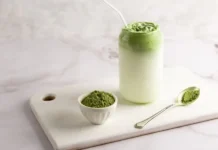If you regularly make juices at home, you will come across your fair share of produce that becomes inedible after a short period. Therefore, Instead of wasting a perfect meal for a couple of days, make sure to store the produce properly until you are ready to juice it. With this resource, you will find helpful tips to keep your fresh produce crisp until it’s time for you to make tasty juices.
Store Fruits and Vegetables Separately From Each Other
Certain fruits and vegetables such as apples, pears, papayas, tomatoes, figs, and bananas naturally emit gases that accelerate the spoilage of other produce items nearby. Therefore, you should store each type of fruit or vegetable in a separate container or bag away from each other to slow down the decaying process and prevent the rest of the produce from absorbing odors that fruits and vegetables might emit.
Cut Away Bruises
You should use vegetables and fruits with bruises when making juices. Therefore, it is essential to pay close attention to the quality of your produce. Bruises are areas where bacteria can grow, so by cutting away the bruises, you are removing the potential source of the bacteria. You can also cut away soft spots and brown spots on the produce. This is to prevent the produce from spoiling.
Pack Up Your Produce Wisely
If you want to make sure your fruits and vegetables stay fresh, you need to pack your produce wisely. If not, the produce may spoil quickly. You can use plastic bags or Tupperware containers if necessary. If you are using plastic bags, make sure to use a zip-lock bag or a plastic bag that contains oxygen absorbers. When packing the produce, make sure that if you pack too much, you don’t put it in a plastic bag as this may absorb the fruit’s moisture and cause it to go bad.
If you are using Tupperware containers, make sure they have enough space at the top so you can fit in your produce. It would help if you also used glass or stainless steel containers as they will not absorb fruits’ natural juices and keep fresh for longer.
Keep Produce In a Cool, Dark Place
The best place to store fruits and vegetables is in the refrigerator, as it will keep your produce fresh for as long as possible. If you do not have a refrigerator available to you or your produce is at the point where you need to consume it soon, opt for a cool, dark cupboard or other areas in your home. You want to make sure that the area storing your produce is away from direct sunlight.
Soak Up Extra Water
Fresh fruits and vegetables should always be kept completely dry when storing them. Water can cause moulding and rot if it comes into contact with your produce. For this reason, make sure to place your fresh produce in a container or bag without any extra water. If you use Tupperware containers, make sure they are correctly sealed to prevent water from soaking into the produce.
Wash Fruits and Vegetables Before You Store Them
Since you won’t be eating some of these items right away, it is recommended that you wash them before storing them because it will remove loose dirt particles and other contaminants. Once you wash them, pat them dry instead of letting them sit in a bag to avoid a slimy texture. This will also prevent any moisture buildup that could make your produce mushy and mouldy over time. If you store your products in the refrigerator, make sure to leave them on a fresh paper towel or something that will dry quickly because putting wet items in the refrigerator will cause them to spoil faster.
Purchase Under Ripe Fruits and Veggies
Generally, the more ripe the fruit or vegetable is, the quicker it will go bad. Therefore, you can buy fruits and vegetables that are still relatively underripe. This will allow them to stay fresh longer so they won’t spoil so quickly, helping you save money. However, it would help if you didn’t let them sit too long; otherwise, they will end up spoiling.
These tips will help you ensure your fruits and vegetables are fresh before you juice them. Plus, it will save you money in the long run because you won’t have to purchase new produce when what you already have is fresh. You will also enjoy the nutritional value and flavor from the fruits and vegetables you juice because you will be using them at their peak freshness.



































































